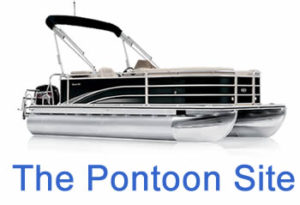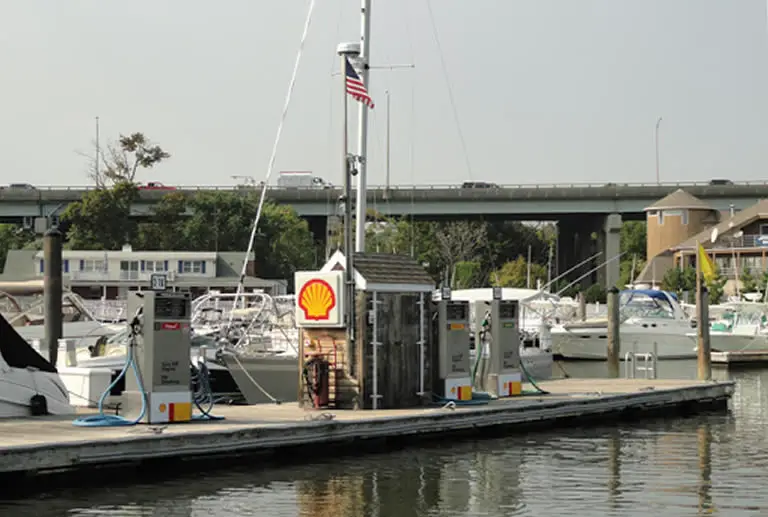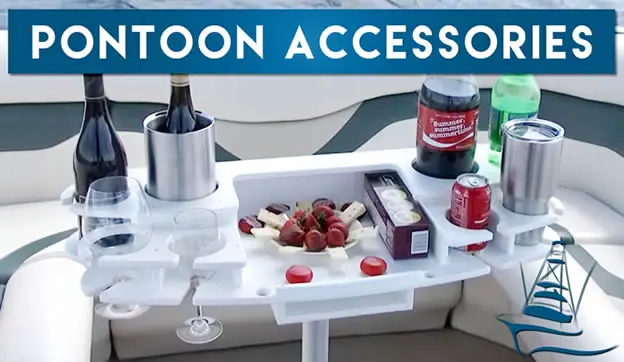Pontoon boats are popular recreational vessels often seen on lakes and large bodies of inland water. They are great for a myriad of activities from relaxed cruising to tubing and water skiing. But, what type of gas do these amazing boats run on?
Contents
What is the best gas for a pontoon boat?
The type of motor mounted on your pontoon boat will determine what type of fuel it needs. Pontoon boats that are fitted with normal outboard motors will use regular unleaded petrol gasoline. Regular unleaded gas used for pontoon boats will usually have ethanol included in it, to protect the engine.
How to determine the best type of gas for your pontoon boat
Almost all recreational boats will be fitted with petrol-fueled engines and this includes pontoon boats, no matter how big they are. Even very large pontoon boats will use regular outboard motors and will match the extra power needed with multiple motors.
Only large commercial vessels, that use a lot of fuel and travel over long distances, will be fitted with diesel engines to help reduce the amount of fuel carried and also reduce fuel-consumption.
It is highly unlikely your pontoon boat will run on a diesel motor. With a pontoon boat it would be disadvantageous to have a sluggish 4-stroke diesel engine as pontoon boats are used for some fast water-based activities and thus require the type of acceleration only a petrol engine can provide.
Petrol outboard motors do not need specialized boa gas. They use regular gasoline and will be much faster than their diesel equivalents. All diesel engines are 4 stroke while petrol outboard motors can be either 4 stroke or 2 stroke.
The best gas for 2 stroke vs the best gas for 4 stroke boat motors
There are many different reasons for choosing between a 2 stroke or 4 stroke motor for your pontoon boat. Your pontoon boat may either a 2 stroke or a 4 stroke motor though it is much more likely to have a 2 stroke one.
Fuel economy and speed are the main concerns when deciding between a 2 stroke or 4 stroke outboard motor. 2 stroke motors tend to weigh less and they can accelerate faster making them better for many water sporting activities that require speed. 4 stroke motors tend to be quieter and have more torque and will have better fuel efficiency but are slower.
There is no such thing as specialized boat gas.
It doesn’t matter whether your outboard has a 2 stroke petrol engine or a 4 stroke petrol engine, it will still run on regular unleaded gas.
Of course if your pontoon boat is fitted with a 4 stroke diesel engine then it will run on diesel. Remember, all 2 stroke outboard motors run on regular unleaded gas so if you have a 2 stroke engine you know that you definitely need to use regular gas.
The advantage of adding ethanol to the gas of a boat
Ethanol is an additive that is mixed with the gas in the boat’s tank. It works to help protect the moving parts of your outboard motor.
Originally ethanol was simply called alcohol as it consists of the same type of alcohol that is in alcoholic beverages.
However, ethanol is almost pure alcohol and so is lethal if consumed – you will often see the ethanol percentage of an alcoholic beverage marked as alcohol content, or similar, on its label.
The alcohol content for many beers is about 4% and about 13% for many wines. We all know the effects , and after-effects, of consuming even a few of these so you can imagine the damage consuming ethanol would do as it is usually about 97% alcohol.
Although the name ethanol was adopted as the scientific name for alcohol at the International Conference on Chemical Nomenclature in 1892, the term “alcohol” has become much more popular in everyday use. The term “ethanol” is now commonly used in motor and cleaning products to help differentiate it from products that have weaker amounts of alcohol in them.
Ethanol is almost always added to regular unleaded fuel at the pump. When you add fuel to your boat’s tank it will almost certainly have ethanol already in it in the correct quantities. If you tend to fuel at marina fuel stations that offer boat gas that has no ethanol added to it there is no need to be concerned as you can add ethanol yourself.
Ethanol can be purchased in bottle form and simply poured into your pontoon boat’s fuel tank where it will mix with the regular gas. Do not make the mistake of adding extra ethanol to your boat’s tank thinking that it will better protect your motor. It will have the opposite effect.
If you have to add ethanol to the gas in your tank yourself, never add more than 10%. The fuel system components that are part of a pontoon boat and its outboard motors are not designed to tolerate the extreme corrosive nature of an ethanol mixture that is higher than 10%.
Follow the guidance on the ethanol product’s label and be sure that the mixture of ethanol to gas is correct. To ensure you do this correctly it is often best to add the suggested amount of ethanol to a full tank of gas.
If your boat’s fuel tank is empty, or nearly empty, when you attempt to do this, fill it up half way with gas first before adding the ethanol and then once the correct amount of ethanol is added continue filling the tank with gas until it is full.
A good marine ethanol mix for boat outboards, like this, works really well for pontoon boats.
How much gas a pontoon boat tank holds
Now that you know what type of fuel to use on your pontoon boat you may want to know how much fuel your boat can hold.
I have a full article outlining how big a pontoon boat gas tank is and reading that article will let you know how much fuel your pontoon boat can carry and how long it will last you when out on the water.
Many pontoon boat owners will carry additional fuel onboard in spare portable tanks. This is a good idea as some activities, such as water skiing and tubing, can use up a lot more fuel than you expect and some pontoon boats come fitted with a very ill-equipped fuel tank that simply cannot hold enough gas. Some water conditions may also require your boat to use more fuel than normal if, for example, your boat is constantly moving against a strong current or strong winds.
If you intend to use an additional fuel tank be sure it is marine grade. I only use marine grade portable tanks for refilling my boat’s main gas tank like those sold at Home Depot.
Home Depot also sells a more permanent solution in the form of spare marine tanks that you can fit on your boat as a backup fuel source. This is a good idea if you find that refilling your tank is becoming a regular activity for you. It is also often much cheaper to add an additional similarly-sized tank to your pontoon boat than it is to replace your existing tank with a larger one.
If you do use a second tank be sure that you use the fuel in it at regular intervals and don’t leave it in the tank to go bad. Gasoline, even when stored in the appropriate sealed container, will begin to degrade in just 3 to 6 months. At this stage it starts to lose its combustibility because of oxidation and evaporation making it useless at best and a hazard to your motor at worst.
Using aged gas that has started to go bad can have a very damaging effect on the internal parts of your outboard motor. Gasoline that has gone bad and is used on your boat can form a gum type of residue which cause blockages.
Additionally, as you will be using regular gas for your pontoon boat motor the gas will have ethanol included in it and the ethanol will probably start to draw water vapor into your fuel line, which could result in serious internal corrosion.
The typical ethanol and petrol mix used for regular unleaded gas will probably only last, at most, 3 months before going bad and causing the above mentioned problems for your pontoon boat. So, be sure to switch between tanks regularly if you have two tanks on your boat. Also drain the tanks before winterizing your boat and before docking it for a prolonged period of more than a few months.
Now you have no excuse for ever running out of gas when you have a pontoon boat party (a more common occurrence than you may think).
Be sure to check out these amazing 55 pontoon boat accessories you’ll wish you had on your boat.



